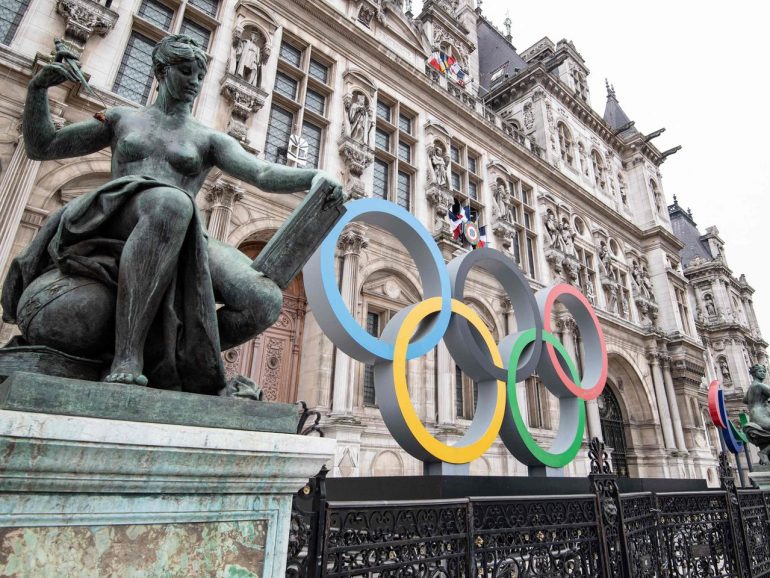- Paris Olympics will utilize advanced AI cameras to enhance security at venues.
- AI technology will monitor for potential threats such as fires, weapon displays, unauthorized vehicles, and crowd disturbances.
- Security measures include a comprehensive strategy addressing extremist threats, cyberattacks, civil unrest, and theft.
- French law prohibits facial and biometric recognition, but AI video surveillance will be used without individual tracking.
- AI cameras will focus on Olympic sites, monitoring crowd behavior and unusual activity patterns.
- The current legal framework allows AI surveillance experiments, excluding facial recognition, with trials ending next June.
Main AI News:
As the Paris Olympic and Paralympic Games approach, French authorities are deploying state-of-the-art AI technology to bolster security across Olympic venues. This advanced surveillance system is designed to detect a range of potential threats in real-time, including early signs of fire, suspicious behavior indicating weapon possession, unauthorized vehicle access, and unexpected crowd surges.
The comprehensive security measures are a response to a broad spectrum of risks, including extremist threats, cyberattacks, civil unrest, and opportunistic crime. The enhanced scrutiny follows a recent high-profile security incident involving an attempted assassination of former President Donald Trump. In light of these concerns, organizers are focused on ensuring a balance between robust security and a welcoming, enjoyable atmosphere for attendees, as noted by Camille Chaize of France’s interior ministry.
AI’s integration into security protocols at the Olympics highlights its expanding role in threat detection. Although French legislation strictly forbids public use of facial and biometric recognition technologies, AI-driven video surveillance will be employed to monitor Olympic sites. This technology will not track individuals but will analyze patterns and behaviors to identify potential security issues.
Mathieu Zagrodzki, a security expert at CESDIP and consultant to French police, explains that the AI cameras will be limited to Olympic venues and will not extend to general public areas. These cameras are programmed to observe and assess crowd movements, detect suspicious luggage, and flag “unusual patterns” of behavior. For instance, they will monitor instances where individuals move counter to crowd flows, exhibit erratic movement patterns, or linger in one spot for extended periods. The system is also designed to detect incidents like brawls, triggering alerts for security personnel to investigate.
Chaize further elaborates that current French law allows for experimental use of AI in surveillance within strict boundaries. The law excludes facial recognition, with the trial period set to conclude next June. The AI cameras will specifically focus on eight predefined events, including detecting fires, identifying potential weapon sightings, and monitoring unauthorized vehicle entries into restricted areas. This approach enables authorities to swiftly identify and respond to emerging issues, maintaining both safety and order during the Games.
Conclusion:
The integration of AI technology into the security framework for the Paris Olympics marks a significant advancement in event safety and surveillance. This deployment highlights the growing reliance on AI for real-time threat detection and management, setting a precedent for future high-profile events. While adhering to legal restrictions on facial recognition, the use of AI to monitor behavioral patterns and detect anomalies demonstrates a shift towards more sophisticated security solutions. For the market, this suggests increasing investment in AI-driven security technologies and an evolving landscape where AI plays a crucial role in enhancing public safety while navigating regulatory constraints.

